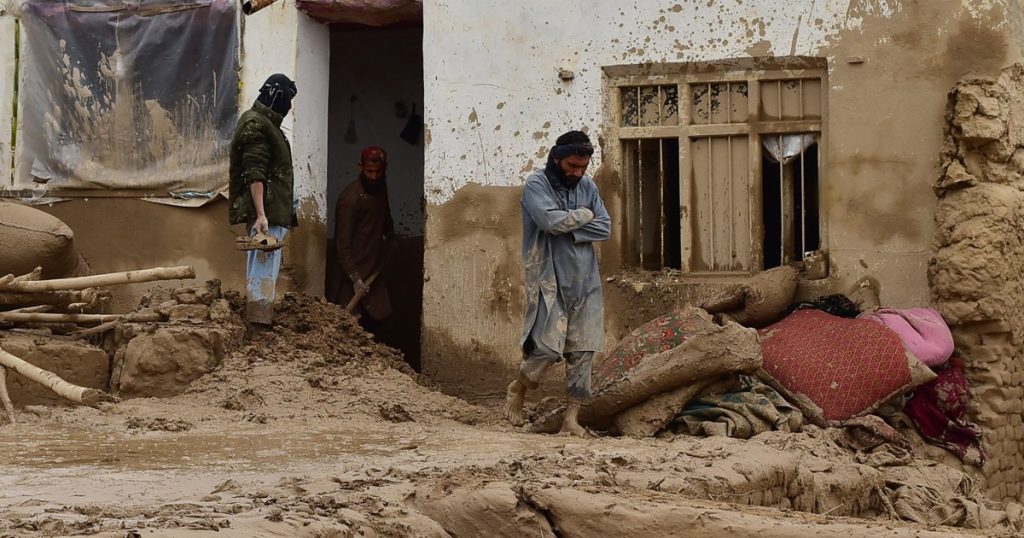Flash floods caused by heavy seasonal rains in Afghanistan have resulted in the deaths of more than 300 people and the destruction of over 1,000 houses. The World Food Program has been distributing fortified biscuits to survivors in the northern province of Baghlan, which was hit particularly hard by the floods. The neighboring province of Takhar also experienced significant casualties, with at least 20 reported deaths. The Taliban government has mobilized resources to assist with rescue efforts and provide aid to those affected by the floods.
Zabihullah Mujahid, the chief spokesman for the Taliban government, took to social media to highlight the devastating impact of the floods in provinces such as Badakhshan, Baghlan, Ghor, and Herat. He emphasized the significant financial losses incurred as a result of the widespread devastation. The Taliban Defense Ministry has initiated evacuations and rescue operations in affected areas, utilizing the country’s air force to transport injured individuals to military hospitals for treatment. The government is working to address the immediate needs of those affected by the floods.
Richard Bennett, the U.N. special rapporteur on the situation of human rights in Afghanistan, underscored the urgent need for both short-term aid and long-term planning to address the country’s vulnerability to climate-related disasters. The floods serve as a stark reminder of the impact of the climate crisis on Afghanistan and highlight the importance of coordinated efforts by the Taliban government and international stakeholders to address these challenges. Immediate assistance is crucial to supporting the affected communities, while long-term strategies are needed to build resilience against future disasters.
Videos posted on social media captured the grim reality faced by survivors in Baghlan, as families gathered behind the hospital in search of their loved ones. Officials informed them to begin digging graves while staff prepared bodies for burial ceremonies. The emotional toll on affected communities is evident as they grapple with the loss of lives and devastation of their homes. The floods in April had already resulted in numerous casualties and widespread damage to homes, mosques, and schools, underscoring the recurring threat posed by natural disasters in Afghanistan.
The U.N. WFP’s distribution of aid to flood survivors reflects the immediate response efforts to provide essential support to those in need. The fortified biscuits being supplied are vital sources of nutrition for displaced families and individuals struggling to recover from the catastrophic events. The collaborative efforts of humanitarian agencies, government entities, and local communities are crucial in ensuring that aid reaches those most affected by the floods and that resources are effectively utilized to address the ongoing crisis. The long-term recovery and rebuilding efforts will require sustained commitment and assistance from various stakeholders to help communities regain stability and resilience in the aftermath of the disaster.


